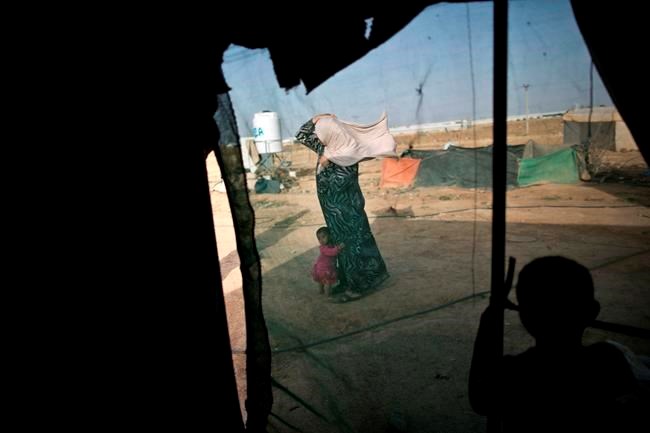Our understanding of the refugee crisis might be too narrowly restricted to the plight of Syrians or those crossing the Mediterranean by boat, say researchers who want to broaden the conversation about people forced to flee their homes.
A conference at the University of Victoria this week aims to tell the story of forgotten migrants: People who are displaced because of climate change, economic hardship or a complex web of factors.
“So much of the press looks at Europe and, more recently with Donald Trump as the new president of the United States, the whole issue of who is and is not welcome in the United States,” said Helen Lansdowne, associate director of UVic’s Centre for Asia-Pacific Initiatives.
“One of the things we wanted to do is broaden the discussion on forced migration and displacement and bring in complexities such as internal migration [and] who gets to be called a migrant or a refugee.”
The centre is hosting the Canadian Association for Refugee and Forced Migration Studies conference this week.
It features a keynote address by Sheila Watt-Cloutier. The human rights and environmental activist will talk about how climate change in Canada’s North could lead to massive displacement for Inuit.
Scholars from Vanuatu and Borneo will also participate in a live-stream discussion on how rising sea levels could wipe out some Pacific Island nations. Already, extreme weather linked to climate change has caused environmental catastrophes around the globe, forcing people from their homes.
Lansdowne said the aim of the conference is not to dismiss the plight of people crossing from the Middle East and Northern Africa to Europe, but to include other stories in the discussion.
Taiwo Afolabi, a PhD student at UVic in applied theatre, uses art to give displaced people a sense of empowerment rather than treating them like victims.
Afolabi has worked with refugees in Victoria and helped them use dance, music and drama to tell their stories, what he calls an exercise in “self-celebration, self-expression and self-documentation.”
“We’re building community and building relationships between refugees from different cultural backgrounds,” said Afolabi, who will discuss his research on Tuesday.
Public events at the conference
Everyone is invited to register for the conference, which takes place over four days in the MacLaurin Building at UVic, but the following public events are free and of particular interest for general audiences.
- Keynote by Sheila Watt-Cloutier (May 15 from 7:30 to 9 p.m., David Lam Auditorium): A well-known environmental, cultural and human rights advocate, Watt-Cloutier will speak from firsthand experience about the realities of the Arctic and how her Inuit culture faces the most extreme challenges of globalization.
- Keynote by Jyoti Sanghera (May 16 from 7:30 to 9 p.m., David Lam Auditorium): Sanghera, chief of the Asia Pacific Section for Office of the UN High Commissioner for Human Rights (OHCHR) in Geneva, will examine legal and policy gaps in the context of large and mixed movements of people, and how walls, fences and incarceration are deployed as tools of governance and legality in response to “migration crises.”
- Roundtable (May 16 from 4:30 to 6 p.m. in room D115): A live-streaming roundtable discussion with guest lecturers from Vanuatu and Borneo featuring voices of South Pacific Islanders on relationships between climate change, community displacement and Indigenous knowledge.
- Keynote by Romola Sanyal (May 17 from 7:30 to 9 p.m., David Lam Auditorium): An assistant professor of urban geography at London School of Economics, Sanyal will look at the politics of refugee control and management, specifically exploring privatized responses to the Syrian crisis and how they enable the flexibility and entrapment of refugees within host countries.
- Film screening (May 17 from 4:30 to 6:30 p.m., David Lam Auditorium): A new documentary about Australia’s offshore detention policies and the personal impacts on those who languish in limbo; also includes Q&A with director Eva Orner.
- Photo exhibit (May 15 – 18 in lobby of David Lam Auditorium): The exhibit, “Double Jeopardy,” from Doctors Without Borders/ Médecins Sans Frontières (MSF) captures stories from three regions where MSF works with refugees and migrants.
- Art display (May 15 – 18 throughout venue): An art exhibit featuring pieces by North Korean refugee youth as part of art therapy at Yeomyung School in Seoul, South Korea.
For more information, go to carfms.org or uvic.ca.



